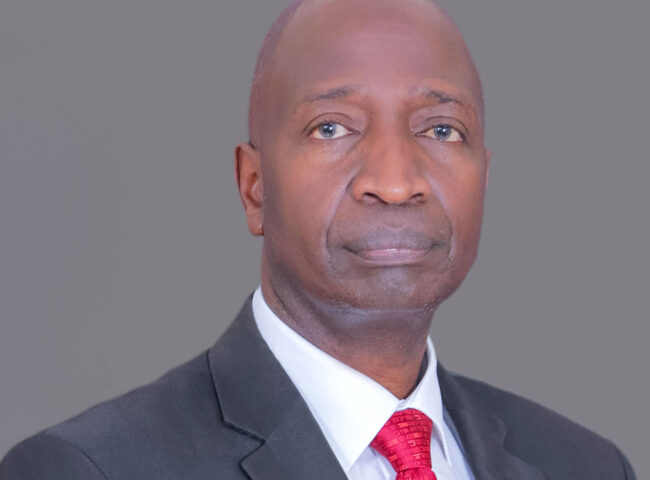Uganda’s proposed oil revenue management legislation was passed quietly into law on Thursday this week. A version of the bill, now law, was first circulated in 2010, making it one of the most considered pieces of legislation amongst the troika of oil laws passed this oil was discovered nearly a decade ago.
Unlike other countries in the region Uganda now has a predictable legal environment for the oil industry. This means that a proposed new licensing round (of reverted blocks), the impending announcement of a lead investor for its oil refinery as well as decisions over an export pipeline, the primary items on its calendar for the first quarter of 2015 will for the first time not hang in the balance of incomplete legislation.
The remaining work, in particular regulations that instrumentalize, the Petroleum Exploration and Production Act, the Petroleum (refining, conversion, and transmission) midstream Act, both signed into law last year, is pending. The head of the Petroleum department, Commissioner Ernest Rubundo told this writer his team would submit regulations to the cabinet by year-end, politics allowing. Uganda has a severe case of early campaigns ahead of the 2016 general elections.
This means that government business, especially cabinet decisions are tagged “election compliant” or tossed aside where compliance means one of two things; approval by the head of state of major policy decisions and procurement related items, and their vetting to ensure that they do not aid perceived enemies in particular the former leader of government business now deposed, Hon. Amama Mbabazi.
Several petroleum related timelines, such as the announcement of a lead investor for the proposed 60bpd refinery have not been met partly due to the distraction of the politics of President Yoweri Museveni’s re-election as detailed negotiating points are run by him, insiders say. Ultimately decisions such as which of the two competing firms, a Russian and Korean conglomerate, gets the deal, rest with him alone.
Uganda has emerged as the test case for the pace of the East African oil and gas sector pioneering most of the industry reforms on the back of a successful exploration program that has been on pause as officials orchestrate a production phase. However its success in the boardroom and before the floor of parliament has come under criticism by mostly international oil companies who complain that protracted political processes and red tape are responsible for the failure to commercialize. A potentially turbulent and expensive re-election period which will occupy an unprecedented 3-years (2014-17) will add to revisions of the first oil agenda much further than 2021. By that time Uganda will have been pursuing commercial success in the sector for 15 years.
Uganda first announced an early production scheme for 2008-9 but industry players said then a 2018 timeline is conservative at best, unrealistic at worst. The revenue management law passed this week in particular has been part of a more ambitious financial management reform which folds oil revenue management within the overall framework of all government revenues.
Conceptually, the government expected to construct a complete ecosystem for oil with local refining, preferred export to a regional market and an indigenously linked industry pegged on an official vision for rapid industrialization. However the realities of mobilizing investment in a climate of contracting global economies, which recently include a decline in the price of oil, and the insurance costs of frontier markets with weak institutions and unpredictable politics have applied brakes to Uganda’s ambition.
Within its oil brass the pace is explained away as a deliberative process. Outside the halls of statehouse and the expanding lakeside home of Uganda’s petroleum effort since the 1920’s in Entebbe, the industry assessment is based on practical and commercial challenges of doing business “the Ugandan way”.
Since it was proposed in 2010, the “revenue management” bill has seen a near complete makeover, from a thinly veiled law to concentrate decision-making on oil revenue in the hands of the central government, to a wider project to bring modern checks in financial management of government revenues including oil, as part of the grander vision of Uganda as an oil producing state.
In August this year, former Finance Minister Dr. Ezra Suruma, a fellow at the Washington DC based think tank, the Brookings Institution said the different iterations of the bill had gone some distance in re-establishing the Ugandan parliament’s oversight powers over the Executive. He however warned that the law still put too much power in the hands of “technocrats”. “The ability of Parliament to check that preponderance of technocratic hegemony may not lie in this bill”, he wrote in a paper appraising the bill proposals.
In total the new law places responsibility for management of oil revenues on the country’s ministry of finance and the Central Bank while holding elected governments responsible for spending limitations through the execution of a “Charter of Fiscal Responsibility” at the start of the financial year. The Parliament is ultimately responsible for approving expenditures and auditing the performance of the government.
However critics (including me) have pointed out that the limitations of the “best practice” model of the law shall be tested ultimately by the balance of political forces ahead of commercialization of the law. In particular Uganda’s de facto single party status and personal influence of President Yoweri Museveni over the sector is a delicate if double-edged sword. On a positive note in the wake of uncomfortable negotiations on commercialization, for example, oil industry players interviewed have cited Mr. Museveni’s strategic grasp of issues, his reliance on a competent cadre of advisors as responsible for the “hard ball” that Uganda played with far more experienced international companies.
Disagreements on whether to prioritize a refinery over a pipeline led to an 18-month hiatus that only ended in February of 2014. “ Mr. Museveni personally attended and stayed engaged throughout these meetings some of which lasted whole days,” said a source in the sector. However it was eventually Mr. Museveni’s influence that led to a sequencing agreement that has placed the development of a pipeline and a refinery at the heart of commercialization.
Nonetheless investors also look to the President’s involvement as an embedded risk that the new laws may barely ameliorate. Recent decisions in the energy and defense procurement sectors have shown that technocrats “work backwards” on the decisions made at state house over which firms win lucrative contracts according to interviews. The President too has had his attention strained, is more tired at meetings and has less time available with a grueling campaign underway and a full calendar of other state matters. In this environment good decisions like today’s green groceries turn yellow and smelly with neglect.
This was the case in the widely reported contract of a 1.4 billion dollar procurement by the Chinese firm Sinohydro for the construction of Karuma Dam, Uganda’s biggest project to date. Financial closure on the dam is still pending with Exim Bank of China reportedly dragging its feet forcing the government to draw on its foreign reserves to meet the start up costs. Unhappy technocrats have complained that Sinohydro is shirking its responsibilities including technical specifications in its contract forcing the Permanent Secretary Kabagambe Kaliisa to write a strong rebuke to the company in October.
Critical voices in the Ugandan civil service point to the triumph of politics over rules for the mess. Allegations of bribery, influence peddling by family members and powerful local and external lobbyists, say those familiar with the process, led to a weaker choice of contractor who has become difficult to police.
In another instance Mr. Museveni’s influence over the Central Bank has also been cited as an example of not where unquestionable control is an advantage but rather not. In the last few weeks Central Bank governor Emmanuel Mutebile has hinted that the economy would over heat in the election year 2016 like it did in 2011.
The last time the governor an ally of the President made public admissions of the powerlessness of the Bank to reign in the spending appetite of the government was in 2010 after its own internal review of the public finance bill. Ironically ahead of another election, and as the law comes into force, governor Mutebile once again raised the spectre that the Bank he leads can do little to prevent the wrecking of government finances by politics. It’s this environment that the new law would confront regardless of its well-crafted checks- critics have pointed.
Bookmakers on the immediate future postulate that spending in the next 16 months will be as wild as Brazil 2014 and equally controversial.










